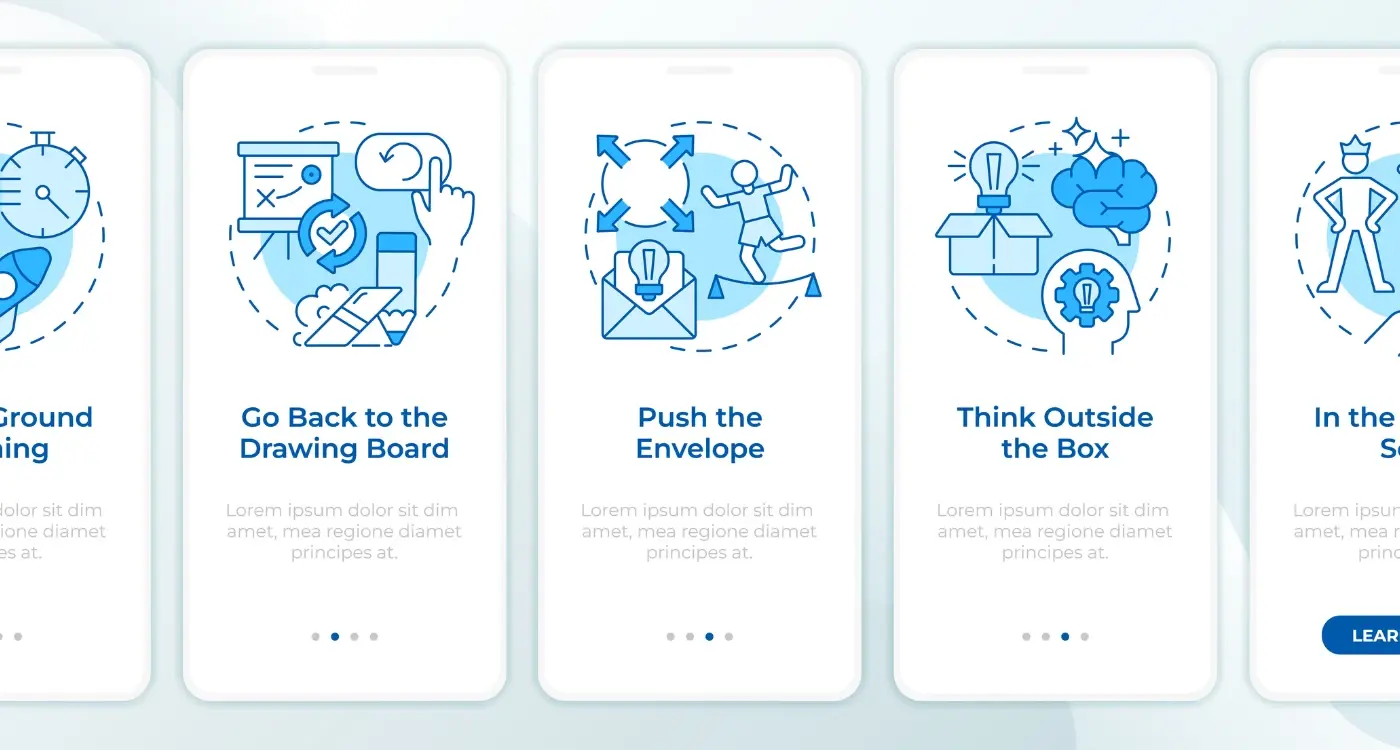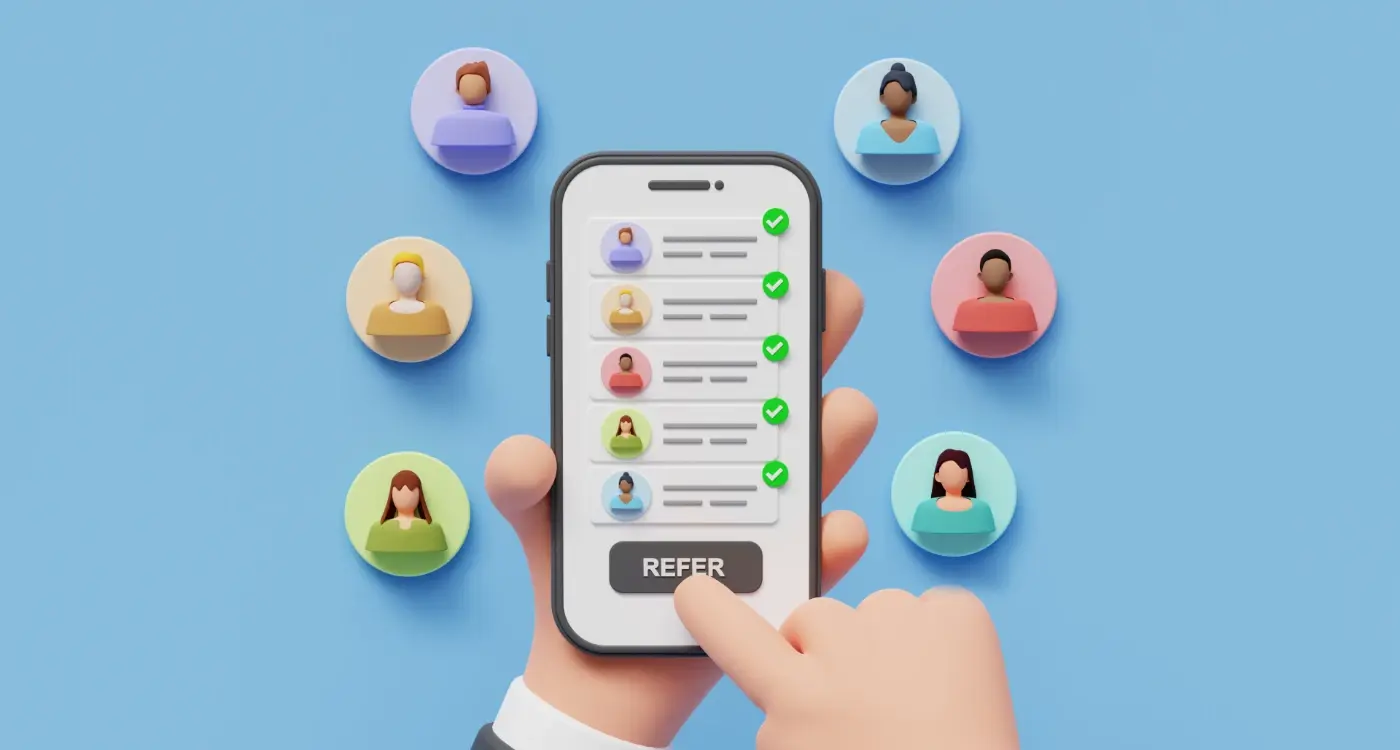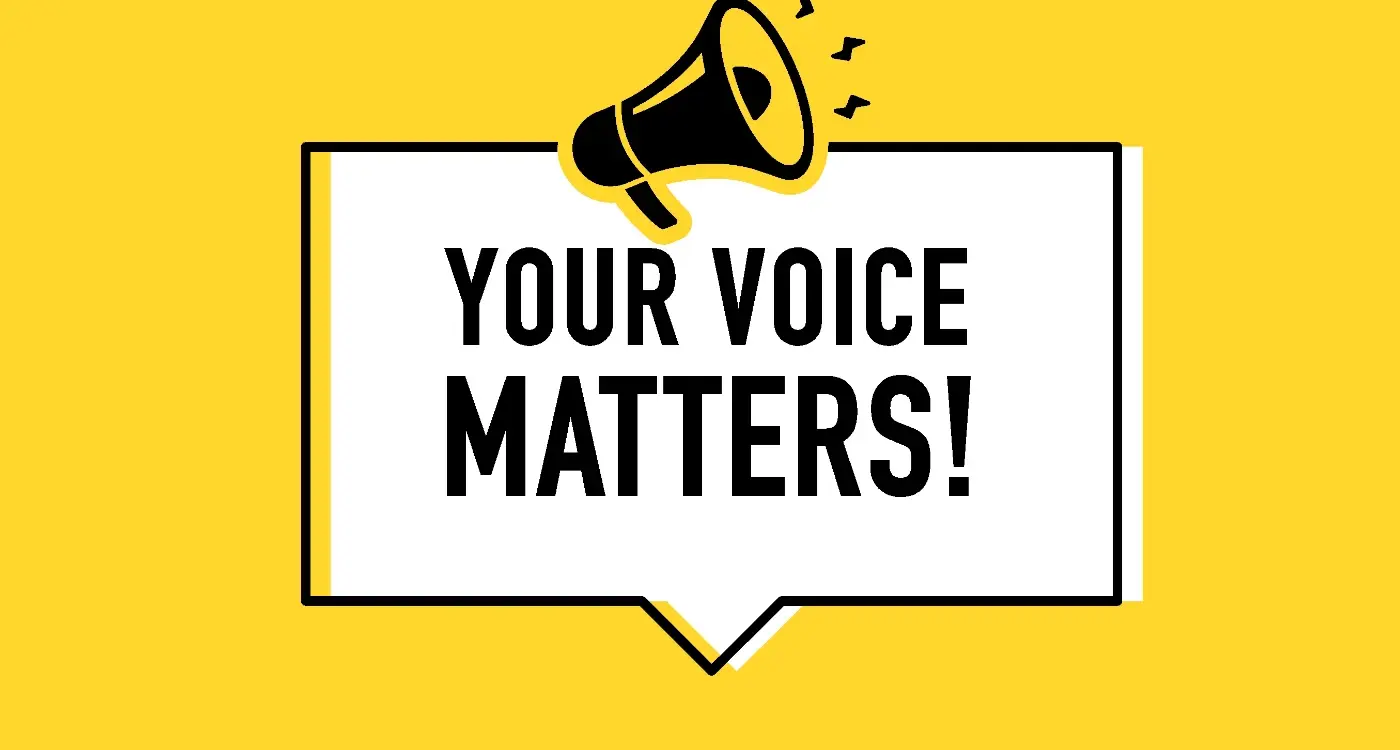Should I Offer Cash Rewards or App Credits for Referrals?
What if the reward system you choose for your mobile app referrals could make or break your user growth? This question keeps many app developers and business owners wondering which path to take when designing their incentive structure. After years of working with apps across different industries, I've seen how this single decision can dramatically impact everything from user engagement to your bottom line.
The choice between cash rewards and app credits isn't just about money—it's about understanding what motivates your users to share your app with their friends and family. Some people love the instant gratification of real money hitting their account, while others prefer building up credits they can spend within your app. Both reward types have their place, but picking the wrong one for your audience can lead to disappointing referral numbers and wasted marketing budget.
The most successful referral programmes aren't built around what the company wants to give, but around what users actually want to receive
Throughout this guide, we'll walk through everything you need to know about both options. We'll look at the costs involved, how each performs in the real world, and what technical challenges you might face during setup. By the end, you'll have a clear picture of which reward type makes sense for your mobile app and your users. No guesswork, no complicated theories—just practical advice based on what actually works.
Understanding Cash Rewards and App Credits
Before we get into which option works best for your app, let's make sure we're on the same page about what these two reward types actually are. The difference might seem obvious, but there's more to it than meets the eye.
Cash rewards are exactly what they sound like—real money that goes directly into your user's pocket. This could be through PayPal, bank transfers, or gift cards that work like cash at major retailers. Your users can spend this money however they want, whether that's on their weekly shopping or saving up for something special. The key thing here is that once they've got it, it's theirs to use anywhere.
What App Credits Actually Mean
App credits are a bit more complex. These are virtual rewards that only work inside your app—think of them like tokens at an arcade. Users can spend them on premium features, extra content, or special perks that your app offers. The catch? They can't take these credits anywhere else; they're locked into your app's ecosystem.
Here's where it gets interesting though. App credits come in different flavours:
- Premium feature unlocks (removing ads, getting extra storage)
- Virtual currency for in-app purchases
- Access to exclusive content or services
- Discounts on subscription upgrades
The Real Difference
The fundamental difference isn't just about where the rewards can be spent—it's about what they represent to your users. Cash rewards feel like genuine compensation for their effort in referring friends. App credits feel more like a bonus or perk for being a loyal user. Both approaches work, but they appeal to different motivations and create different relationships between you and your users.
Who Uses Your App and What They Want
Before you can decide between cash rewards and app credits, you need to understand who's actually using your mobile app. Different types of users want different things from your incentive structure—and getting this wrong can waste a lot of money.
Think about your typical user. Are they students trying to save money? Busy professionals who value convenience over everything else? Families looking for the best deals? Each group responds differently to reward types, and what motivates one might leave another completely cold.
Cash-Motivated Users
Some people are primarily driven by real money. These users often include younger demographics, people on tight budgets, or those who see your app as just one of many they use regularly. They want rewards they can actually spend anywhere—not just within your app ecosystem.
Loyalty-Focused Users
Other users prefer app credits because they're already committed to your platform. These tend to be your most engaged customers who use your app frequently and see long-term value in building up credits for future purchases or upgrades.
Survey your existing users about their reward preferences before making this decision. The data will often surprise you and save you from making costly assumptions.
The key is looking at your user behaviour data. How often do people open your app? How much do they typically spend? Do they refer friends naturally, or do they need strong incentives? Users who already love your app might be perfectly happy with credits, whilst casual users probably want cash they can use immediately.
| User Type | Preferred Reward | Why |
|---|---|---|
| Casual Users | Cash | Want immediate, flexible value |
| Regular Users | App Credits | Already engaged with your platform |
| Budget-Conscious | Cash | Need real money they can use anywhere |
How Much Money You'll Need to Spend
Let's talk numbers—because at the end of the day, your referral programme budget matters more than you might think. Cash rewards are straightforward to calculate; if you're offering £5 for each successful referral, and you get 100 new users through referrals, you're looking at £500 in direct costs. Simple maths, right?
App credits work differently though. If your app sells digital products or services, giving away £5 in credits doesn't actually cost you £5 in real money. You're giving away your own inventory, which has a much lower cost than the retail price. A £5 credit might only cost your business £1-2 in actual expenses.
Hidden Costs You Need to Consider
Both reward types come with extra expenses that catch people off guard. Payment processing fees, tax implications, fraud prevention systems, and customer support time all add up. Cash rewards typically need third-party payment systems, which charge fees for each transaction—usually around 3-5% plus a fixed fee.
App credits require different infrastructure but can be cheaper to manage once you've got the system running. You'll need to track credit balances, handle expiry dates, and deal with customer queries about their rewards.
Budget Planning Made Simple
| Cost Type | Cash Rewards | App Credits |
|---|---|---|
| Direct reward cost | 100% of reward value | 20-40% of reward value |
| Processing fees | 3-5% + fixed fees | Minimal |
| Setup complexity | Medium | Low |
The sweet spot for most apps is setting aside 10-15% of your marketing budget for referral rewards. Start small, test what works, then scale up once you've got solid data on your conversion rates and customer lifetime value.
Which Reward Type Gets More People to Share
When you're building a mobile app referral programme, you want to know which reward type will actually get people talking about your app. The data on this is pretty clear—and it might not be what you expect.
Cash rewards typically generate more immediate shares than app credits. There's something about real money that makes people act faster. People understand cash instantly; they know exactly what £5 or £10 means to them. App credits require mental gymnastics—users have to think about whether they'll actually use your app enough to make those credits worthwhile.
The Psychology Behind Sharing Behaviour
Here's what happens in practice: when someone gets a cash reward for referring friends, they're more likely to share your app within the first 48 hours. Cash feels like free money, and people want to tell others about free money opportunities quickly. App credits, on the other hand, create a slower burn effect. Users might share eventually, but they often wait until they've used your app more and understand its value better.
The best referral programmes aren't just about the reward amount—they're about matching the reward type to how quickly you need results and what motivates your specific users
But—and this is important—the "more shares" doesn't always translate to "better long-term results." Cash rewards can attract people who share your app without really caring about it, leading to referrals that don't stick around. App credits tend to attract users who are already engaged with your mobile app and want to see their friends join them. The incentive structure you choose depends on whether you're optimising for quick growth or sustainable user acquisition.
How Easy It Is to Set Up Each System
Setting up rewards systems isn't as complicated as you might think, but there are definitely differences between cash rewards and app credits that you need to know about. I've helped loads of clients implement both types, and the setup process can vary quite a bit depending on what you choose.
Cash Reward Systems
Cash rewards require more moving parts—you'll need to integrate with payment processors like PayPal, Stripe, or bank transfer systems. This means additional verification steps for users (they'll need to provide banking details), and you'll have to handle compliance requirements in some regions. The technical setup takes longer because you're dealing with real money regulations and compliance requirements.
You'll also need to consider currency conversion if you have international users. Different countries have different rules about digital payments, which can make things tricky.
App Credit Systems
App credits are much simpler to set up. You're creating your own internal currency system, which means fewer external integrations and less regulatory headache. Most app development platforms have built-in tools for managing virtual currencies, so the technical lift is lighter.
The main setup tasks include defining credit values, creating redemption options, and building the user interface to display balances. That's about it.
| Setup Factor | Cash Rewards | App Credits |
|---|---|---|
| Technical complexity | High | Low |
| External integrations needed | Multiple | Few or none |
| Compliance requirements | Significant | Minimal |
| Development time | 2-4 weeks | 1-2 weeks |
If you want something up and running quickly, app credits win every time. But if you're prepared for a longer setup process, cash rewards might be worth the extra effort.
What Could Go Wrong with Each Option
Let's talk about the problems you might face with each reward type—because trust me, there will be problems! I've seen mobile app owners run into these issues time and time again, and it's better to know what you're getting into from the start.
Cash Reward Problems
Cash rewards can drain your budget faster than you think. People love free money, so your referral programme might become too popular too quickly. You could end up paying out more than your app actually makes from new users. There's also the hassle of payment processing—you'll need systems to handle bank transfers, PayPal payments, or gift cards. This means more admin work and potential delays that frustrate users.
Some people might try to game the system by creating fake accounts or using multiple email addresses to claim rewards repeatedly. You'll need fraud detection measures, which adds complexity to your incentive structure.
App Credit Problems
App credits only work if people actually want to spend money in your mobile app. If your users don't typically make purchases, those credits become worthless pieces of digital paper. This can make your referral programme feel like a waste of time to users.
Credits can also create awkward situations where someone has earned £8 in credits but wants to buy something that costs £10. Do they pay the extra £2? Many people find this frustrating and just walk away instead.
Start with smaller reward amounts than you think you need. You can always increase them later, but it's much harder to reduce rewards once people expect them.
The key is choosing problems you can actually handle. Both reward types have their headaches, but some headaches are more manageable than others depending on your app and budget.
Making Your Final Decision
Right, you've looked at all the numbers, weighed up the pros and cons, and now it's time to make a choice. This is where many app owners get stuck—they overthink it when the decision should be quite straightforward based on what you've learned about your users and your budget.
If your app makes money directly from users (through purchases, subscriptions, or premium features), app credits usually make the most sense. They keep the money within your ecosystem and often cost you less than cash rewards. Plus, they're simpler to track and manage from a technical standpoint.
When Cash Rewards Work Best
Cash rewards shine when your app doesn't sell anything directly to users—think social apps, news apps, or games that rely on advertising revenue. Your users can't spend credits in your app because there's nothing to buy, so cash becomes the obvious motivator. The setup is more complex, but the appeal is universal.
Questions to Ask Yourself
Before you decide, run through these quick checks:
- Can users actually spend app credits in meaningful ways within your app?
- Do you have the budget to handle potential cash reward payouts?
- Which option aligns better with how your app currently makes money?
- What does your target audience respond to more—immediate cash or future app benefits?
The truth is, there's no universally "right" answer here. Both approaches can work brilliantly when they match your app's business model and user expectations. Start with whichever feels more natural for your situation—you can always test the other approach later once you've got some referral data to work with.
Conclusion
After building dozens of mobile apps with referral systems over the years, I can tell you there's no single "right" answer to the cash versus credits question. Both reward types work—but they work differently depending on your specific situation.
Cash rewards tend to attract more people and get shared more widely; they're universally appealing and remove friction from your referral process. App credits, on the other hand, keep users engaged with your platform longer and typically cost less to implement. The choice really comes down to what you're trying to achieve and what resources you have available.
Your incentive structure should match your user base and business goals. If you're a new app trying to grow quickly, cash might be your best bet for maximum reach. If you're an established platform looking to deepen engagement, credits could work better. Budget matters too—cash rewards require more upfront investment, while credits can be managed more flexibly.
Don't forget about the technical side either. Cash systems need more complex setup and compliance considerations, whilst credit systems are generally simpler to implement. Both come with their own risks, from fraud prevention to user satisfaction challenges.
The best approach? Test both if you can. Start small with one option, measure the results, then try the other. Your users will tell you what works through their actions. What matters most is choosing a reward type that feels authentic to your brand and valuable to your audience—that's when referral programmes really take off.
Share this
Subscribe To Our Learning Centre
You May Also Like
These Related Guides

How Do I Create an Onboarding Flow That Reduces App Abandonment?

How Much Should I Offer As a Referral Bonus for My App?



